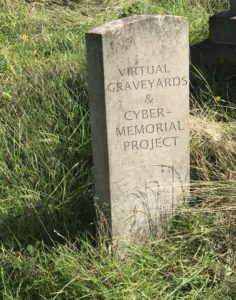Virtual Graveyards & Cybermemorials
Yasmin Jiwani is an ACT collaborator whose recent research focuses on the online memorialization of loss. Her other research interests encompass issues of media, race, gender and intersectionalities of violence.
There is nary an area of social life that has not been touched by digital technologies. Death is not exempt from this either. Today, we are witnessing a plethora of virtual graveyards and cybermemorials. Many of us who are users of Facebook will have seen the RIP (rest in peace) pages of those who have departed. But virtual graveyards are less familiar.
Yes, these are graveyards in cyberspace and our research has been focused on mapping them, identifying their traits, assessing their accessibility and finding ways in which they can be better used by those of us from communities that have little recourse to other forms of memorializing our dearly departed and remembering them in ways that keep them alive in our imaginations and in our families.
In our quest to chart this terrain, we found 95 virtual graveyards – and the list is growing. Each of these graveyards is different. Some require fees, others are free and managed by individuals who have suffered a loss and wish to extend their compassion to others. Some are sophisticated, featuring all manner of gifs (graphic interfaces) that include placing baskets of fruit, teddy bears, flowers, and poems at the cyber grave site. Others are organized in such as fashion as to have a separate tab for children who have died, and for mourners to mourn their spouses. Still others are organized around particular kinds of death, as for example, the loss of a loved one from a particular disease, or as a result of suicide. Clearly, the range of virtual graveyards runs the gamut, encompassing sites dedicated to commemorating pets, lovers and miscarriages.
In our effort to understand why individuals decide to commemorate their loved ones virtually, we encountered studies that demonstrated their strong therapeutic value. Too often, society demands that our grieving end within a circumscribed time. Work places usually allow two weeks for bereavement. But grief is an ongoing process, and as a process, it takes time. Virtual grave sites offer a chance for the continued working through of grief, and in that sense, the ease the burden on the individual who can do this in private, in the comfort of their homes (if they have a computer and are digitally literate).
Our interest in virtual graveyards is also based on the kinds of stories that memorials tell of lives lived and the struggles and experiences of the deceased. These are the little histories that are only remain in the anecdotes we share with one another. Collectively, though, these little histories tell a larger history of how people migrated, the struggles they experienced, and the actions they took to create a life for themselves and their families.
Through workshops that we will be holding, we hope to provide interested individuals from minoritized communities with a way in which they can share these stories and memorialize their loved ones.
For more information on the virtual graveyards project, visit: www.thanatech.org and contact me at yasmin.jiwani@gmail.com

